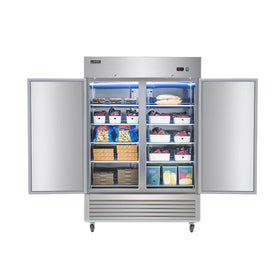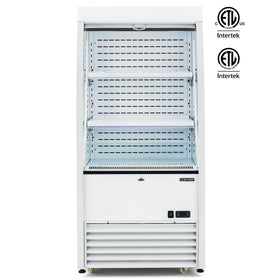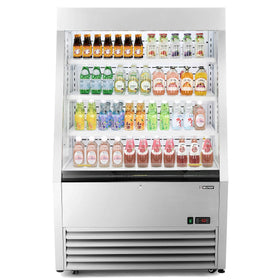ETL (Electrical Testing Laboratories) certification ensures kitchen appliances and equipment meet stringent safety, performance, and regulatory standards. Here’s why ETL certification should be a requirement when purchasing commercial appliances.
Safety Benefits
ETL testing verifies electrical safety to prevent fires, shocks, electrocution and other hazards. According to the National Fire Protection Association (NFPA), an average of 7,640 restaurant fires occur each year in the US, mainly from electrical malfunctions. ETL appliances must meet requirements of NFPA 70 (National Electrical Code) and NFPA 96 (Ventilation Control and Fire Protection of Commercial Cooking Operations).ETL also guarantees equipment won’t leak hazardous gas or refrigerants. In 1990, a refrigerant leak from a non-certified freezer in a Bronx restaurant exploded, injuring 27 people. [1] ETL certification involves rigorous leak testing. It also verifies stability, so appliances don’t tip over and cause injuries. In 2018, a 56,000 pound non-ETL certified oven fell on a chef in New York. [2]
Additionally, ETL confirms proper safety mechanisms function, like sensors, power switches and alarms. This further prevents accidents in commercial kitchens, which already have a higher injury rate than private residences.
Performance Benefits
The ETL mark certifies appliances meet uniform industry standards for efficiency and operation. For example, it validates the stated power output, temperature consistency and temperature recovery times through repeated testing. Accurate BTU ratings and electricity loads are important for choosing adequately sized equipment and estimating operating costs.
ETL also verifies critical airflow, ventilation, humidity and air turnover rates for optimal cooking conditions. It ensures ovens maintain proper temperatures for baking, broilers reach searing heats evenly, and refrigerators hold set temperatures consistently. Passing these live testing parameters proves reliable, consistent performance.
Regulatory Benefits
Most jurisdictions require ETL listing for commercial kitchen equipment. In New York City, for example, all cooking appliances must meet ETL sanitation standards per the NYC health code. [3] Having ETL certified appliances simplifies permitting and inspections for new restaurants. It also prevents violations or fines from regulators.
Additionally, many leasing companies and commissary kitchens mandate ETL equipment certification. It provides them assurance your appliances meet safety codes.
ETL certification can even lower insurance costs. Some providers offer discounts on fire/liability insurance for commercial kitchens with ETL certified appliances.
Conclusion
In summary, ETL third-party certification provides invaluable safety, performance and regulatory assurances. It's highly recommended when equipping a new commercial kitchen or upgrading appliances. While the certification process adds costs for manufacturers, the benefits for end-users are well worth it.
[1] https://www.nytimes.com/1990/08/16/nyregion/blast-injures-27-at-bronx-restaurant.html
[2] https://ny.eater.com/2018/1/29/16944856/oven-death-emanuele-di-pauli-il-forno
[3] https://www1.nyc.gov/assets/doh/downloads/pdf/rii/regulations-for-food-service-establishments.pdf










